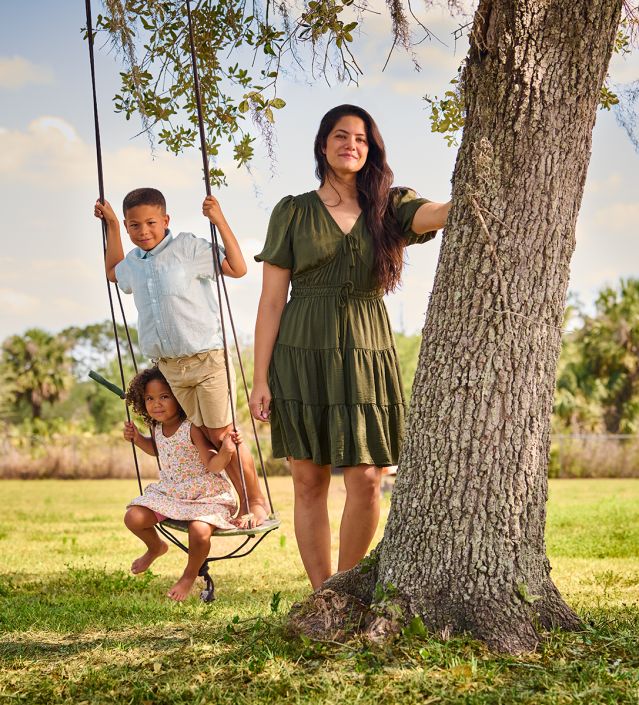Every parent dreams of raising happy, confident, and resilient children. Yet, in a world grappling with rising youth anxiety, depression, and peer pressure, the fundamental question shifts. It’s not just, “How do I help my child?” but rather, “How do I become the parent my child feels safe turning to, no matter what?” This transformative journey often begins with a surprising truth: our vulnerability becomes a powerful catalyst for their emotional growth and well-being.
Strong, stable, and nurturing relationships with caring adults are the single most important factor in a young person’s mental health. However, many parents struggle to maintain this ideal. When a child faces a big emotion, how do you respond? Do they feel genuinely safe to express themselves without fear of judgment, criticism, or shame?
Experts in child and adolescent health refer to this honest, safe connection as family attunement or biosynchrony. It’s vital for a child’s emotional health, and crucial for their developing brain and body. Unfortunately, statistics show only about 48% of families exhibit the resilience and connection most protective for kids. With 41% of parents reporting stress levels that prevent them from functioning, the need for a new approach is clear. The path forward begins with parents embracing their own healing and self-awareness.
The Profound Impact of Authentic Family Connection
Recent national studies highlight the profound influence of open family communication on a child’s ability to thrive. Researchers asked parents a crucial question: “Can you and your child truly talk about things that matter?” The findings were compelling:
- Children whose parents reported their kids easily or “very well” able to share ideas and discuss difficult topics were 12 times more likely to flourish.
- Even being “somewhat able” to talk to parents about tough subjects made children nearly four times more likely to thrive compared to those who couldn’t communicate effectively.
- Girls who felt safe discussing worries, anger, or troubles with their parents were significantly less prone to anxiety, depression, or behavioral issues.
These positive effects persist even when children face adversity, poverty, or chronic health challenges. Families that consistently communicate, collaborate on problem-solving, maintain hope, and recognize their strengths empower their children to be three to four times more likely to flourish.
How Open Conversations Build Resilience and Wire the Brain
Children who feel genuinely supported by a parent exhibit lower levels of stress and inflammatory markers, both linked to depression and various health problems. Furthermore, teens with stronger parent-child bonds are less likely to engage in risky behaviors. From birth, a child’s brain continuously asks, “Am I safe? Do I belong?” This fundamental interaction between the brain and its environment shapes how children handle stress throughout their lives.
When parents model how to honor, acknowledge, and manage their own emotions, children internalize this rubric for emotional regulation. Conversely, if parents are overwhelmed, children absorb that anxiety. However, when we remain calm, listen attentively, validate their feelings, and stay present, their neural pathways for safety, resilience, and future problem-solving become stronger.
In these moments of being truly seen and heard, a child’s brain releases oxytocin and other neurochemicals that reinforce trust and connection. The more frequently these positive interactions occur, the greater their capacity to manage stress, recover from setbacks, and confidently seek help when needed.
Embracing Vulnerability: How Our Healing Shapes Family Bonds
Our children need a profound sense of safety now more than ever. Yet, how can we effectively meet their emotional needs if we haven’t tended to our own? This isn’t about parental weakness or failure. Our culture often neglects to teach emotional intelligence, offering little support for its development. It’s a collective challenge we all share.
It’s essential for us, as parents and adults, to acknowledge that it’s okay to feel, to struggle, and to care for our own pain with compassion and love. Engaging in our own inner work deepens our relationships with our children. Studies show that adults who recognize the impact of past experiences in their own lives are calmer and more present when faced with their children’s challenging behaviors.
Helping young people heal and thrive begins with turning a compassionate eye toward your own story. This includes acknowledging where you are in your healing journey and where you aspire to be. This profound connection to yourself fuels your capacity to expand and attune to your child’s distress, fostering intergenerational healing. When you find yourself quick to react, ask: “Why am I feeling so overwhelmed, so triggered by this?” Then, “How can I quickly soothe myself, so I can effectively soothe them?” (Science-backed tools can readily assist with this process).
Practical Steps for Building Safe, Supportive Family Relationships
Transforming family dynamics requires intentional effort. Here are actionable steps to foster deeper connection:
- Practice Self-Attunement First: Before you can truly be present for your child, check in with your own emotions. Acknowledge your feelings without judgment. This self-awareness is foundational.
- Model Emotional Regulation: Show your children how you identify and manage your emotions. Talk about what you’re feeling and how you cope in a healthy way.
- Listen with Presence: When your child speaks, put down distractions. Make eye contact and actively listen to understand, not just to respond. Validate their feelings, even if you don’t agree with their actions.
- Create Pockets of Safety: Consistently show up for your children with compassion and full presence. These repeated moments build trust and reinforce that they are safe and not alone.
- Seek Support When Needed: Recognize that it’s okay to struggle. Utilize resources like journaling, mindfulness practices, or professional support to navigate your own healing journey.
Conclusion: The Enduring Power of Parental Vulnerability
When we commit to this inner work, it profoundly changes us, our family dynamics, and the well-being of the children we nurture. By practicing attunement—first with ourselves, then with our children—we create tiny, yet powerful, pockets of safety. We consistently demonstrate that we can show up for them: attuned, compassionate, and fully present. They learn they are not alone and are safe with us.
This work is messy, ongoing, and deeply human, yet it is arguably the most vital endeavor we will ever undertake. The greatest gift every child deserves is knowing they can turn to a parent for help—without fear, judgment, or shame. Everything else, from resilience to mental health and overall well-being, flows organically from this foundational connection. Ultimately, our vulnerability becomes the bedrock of their enduring strength and security.










